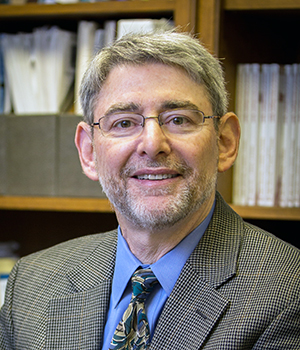
Kurt Beron
The research community in North Texas received a major boost this week with the announcement of a partnership between the U.S. Census Bureau and a consortium of leading research institutions led by the Federal Reserve Bank of Dallas and the University of Texas at Dallas to establish the Dallas-Fort Worth Federal Statistical Research Data Center.
The center will give approved researchers greater access to sensitive data that they might not otherwise have clearance to view.
Wenhua Di, senior research economist at the Dallas Fed, will be executive director of the center, and Kurt Beron, professor of economics at UT Dallas, will help coordinate.
Federal Statistical Research Data Centers are partnerships between federal statistical agencies and leading research institutions. They “provide secure facilities for approved researchers to access restricted-use microdata for research,” Beron told Dallas Innovates.
The secure facility serving DFW and west Texas will be housed at the Federal Reserve Bank of Dallas in the Uptown area of Dallas.
According to a release from the Dallas Fed, the center is the culmination of an extensive grant process that involved contributions from all consortium members and a review by the National Science Foundation and the U.S. Census Bureau. The Dallas facility is one of several planned around the nation.
“Our role in this project aligns well with the bank’s strategic priorities of serving as a thought leader in policy-related research and being a leading citizen in the communities we serve.”
Rob Kaplan
“Our role in this project aligns well with the bank’s strategic priorities of serving as a thought leader in policy-related research and being a leading citizen in the communities we serve,” Dallas Fed President Rob Kaplan said a statement.
Beron said UT Dallas is the host institution for the consortium that also includes the University of Texas at Arlington, the UT Southwestern Medical Center, Southern Methodist University, Texas Tech University/Texas Tech University Health Sciences Center, the University of North Texas, Texas Christian University, and the Dallas-Fort Worth Hospital Council Foundation.
“My role as the National Science Foundation principal investigator at the host institution is to represent the consortium, along with my co-Investigator, Wenhua Di, … in all direct communication with the [NSF] and the U.S. Census,” Beron told Dallas Innovates. “I will be involved in structuring the legal and regulatory relationship between the consortium, through UT Dallas, and the U.S. Census.”
He also will work with Di on outreach to the consortium and educating researchers throughout the area on the opportunities available with the center’s data.
“There is much to be done in the coming months before the center opens next year … “
Kurt Beron
“There is much to be done in the coming months before the center opens next year, including constructing the facility at the Fed, forming a consortium board, and hiring a Census Administrator,” Beron said.
He called the research potential at the center “enormous.”
“Researchers at an FSRDC have access to economic, demographic, employer-employee jobs, and health data,” Beron said. “What makes these data different from what most researchers are able to use is that these are detailed restricted-access data containing sensitive information not publicly available due to confidentiality concerns.”
He said consortium members would be able to access data that should allow them to produce both scholarly work that is not usually possible, as well as produce better-evidenced policy recommendations.
The data will be given free, or at a minimal cost, to consortium members depending on the data’s source, Beron said. He said non-members might still have access, but would have to pay an access fee.
“The data available lend themselves to interdisciplinary work and so we are optimistic that there will be cross-institution work.”
Kurt Beron
Beron said researchers using the data will have to undergo a rigorous vetting of their proposals as well as a security background check because of the data’s sensitivity.
All analysis will have to be at the center itself, rather than at a researcher’s office, Beron said.
“We are hoping that members in, and outside, of the consortium will work together on various projects,” he said. “The data available lend themselves to interdisciplinary work and so we are optimistic that there will be cross-institution work.”
Beron said that as the center moves forward, “we plan to construct opportunities for researchers to get together at meetings, presentations, and training sessions.”
Delivering what’s new and next in Dallas-Fort Worth innovation, every day. Get the Dallas Innovates e-newsletter.































































